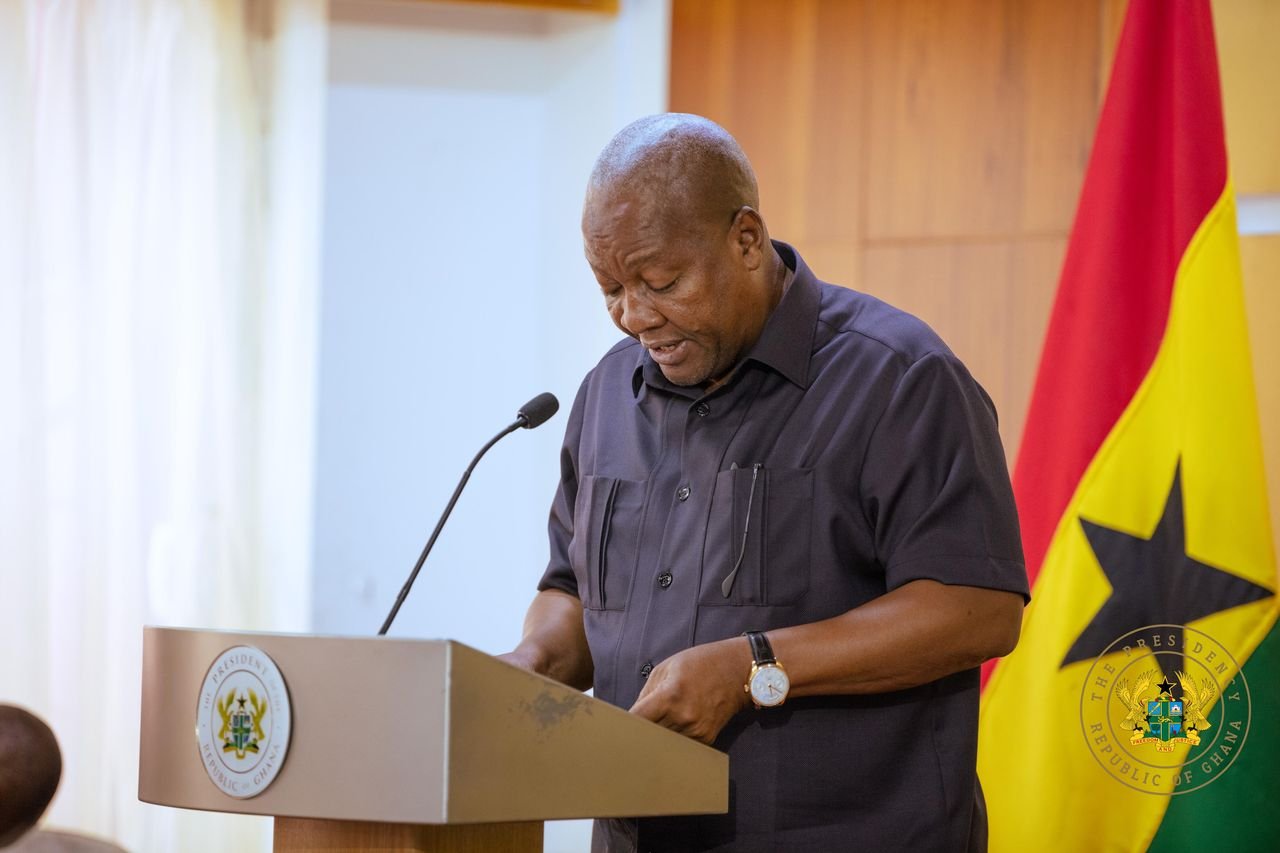President John Dramani Mahama has emphasised that the newly launched 24-Hour Economy policy is not merely about extending working hours but is designed to unlock productivity and drive inclusive economic growth.
Speaking at the official launch of the programme on Wednesday, July 2, 2025, President Mahama explained that the initiative seeks to expand opportunities, stimulate exports, and foster well-structured, multi-sectoral interventions that benefit all Ghanaians.
“The 24H plus aganda is not simply extending working hours, it’s about unleashing productivity, expanding opportunities, accelerating exports through well structured multi sectoral and inclusive interventions. And so we would have national consultations and co-design,” President Mahama stated.
The 24-Hour Economy policy, a flagship campaign promise of the National Democratic Congress (NDC) during the 2024 elections, represents a bold step towards addressing unemployment, enhancing productivity, and boosting Ghana’s global competitiveness.
Presidential Advisor on the 24-Hour Economy, Dr. Goosie Tanoh, has described the initiative as a strategic response to Ghana’s pressing economic challenges. He noted that the policy focuses on three key pillars: transforming production systems, improving supply chains and market efficiency, and building a skilled workforce ready for a modern, around-the-clock economy.
The initiative is expected to require $4 billion (approximately GHS 400 billion) over the next five years for full implementation. While the government has committed an initial \$300 million in seed funding, Dr. Tanoh stressed that significant private sector investment will be crucial to the policy’s success.
The 24-Hour Economy was developed through extensive nationwide consultations involving businesses, labour unions, industry stakeholders, and the general public to ensure the programme reflects the real needs and aspirations of Ghanaians.
Government officials have indicated that the policy will also tackle longstanding obstacles to doing business in Ghana, including inconsistent incentive regimes, high operational costs, and bureaucratic bottlenecks linked to corruption.
Additionally, the initiative will promote the development of ecological industrial zones, address land title challenges, and integrate digital skills training into technical and vocational education to prepare the workforce for emerging job opportunities.
The government believes that beyond reducing unemployment and boosting productivity, the 24-Hour Economy will help position Ghana as a competitive global player.
The official launch signals the beginning of a nationwide rollout of interventions aimed at building an economy that works for all Ghanaians — day and night, all year round.
Source: Ghana/Starrfm.com.gh/Hamdia Mohammed




